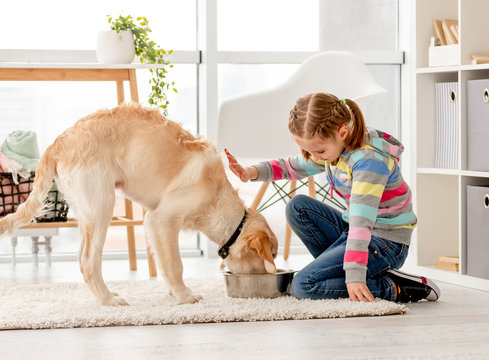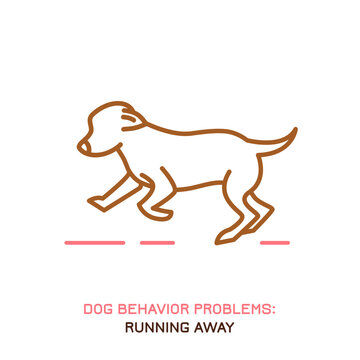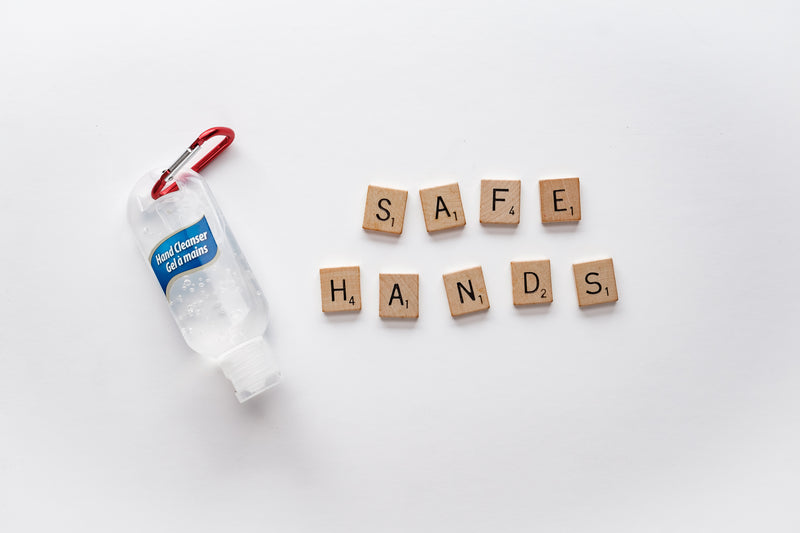Maximizing Your Dog and Animal Care: Understanding Your Pet’s Needs
Our furry friends are more than just pets, they’re family. As pet owners, it’s our responsibility to ensure that our four-legged companions receive the best possible care. But with so much conflicting information out there, it can be challenging to know what exactly our pets need to thrive. In this blog post, we’ll delve into the world of pet care and explore the various factors that play a significant role in your pet’s well-being. From nutrition to exercise and everything in between, we’ll help you understand your pet’s needs so you can provide them with the care they deserve. So buckle up and get ready for some valuable insights that will take your pet care game to the next level!

The Importance of Proper Nutrition for Your Dog and Animal: How to Feed Them Right
Proper Nutrition is essential for the overall health and well-being of your dog and animal. Feeding them a balanced diet that meets their nutritional needs is crucial in maintaining their health and preventing illnesses. Dogs and animals have different dietary requirements, so it’s important to choose the right food for your pet. Look for high-quality pet food that contains essential nutrients such as protein, carbohydrates, fats, vitamins, and minerals. Avoid feeding them table scraps or human food as it can lead to obesity and other health problems. Make sure to follow the feeding instructions on the package and provide fresh water at all times. Additionally, monitor your pet’s weight regularly and adjust their diet accordingly to maintain a healthy weight. Proper nutrition is the foundation of good health for your furry friend, so make sure to prioritize it in their care routine.

Understanding Your Dog and Animal’s Behavioral Patterns: Tips on Training and Socialization
Pets, especially dogs, have unique personalities that require individualized training approaches. Some are well-behaved naturally, while others need more guidance. Good behavior comes from consistent and positive reinforcement.
Socializing your pet is an essential aspect of their development since it ensures they get along with people or other animals. Early socialization will prevent potential problems like aggression in the future.
Positive reinforcement involves rewarding good behavior to encourage repetition while ignoring bad behavior is also necessary for effective training. Train regularly to maintain a positive attitude when handling pets.
When dealing with problematic behaviors such as biting or excessive barking, address the situation promptly by reinforcing good attitudes even during stressful situations. A trainer might be needed in this context, but ensuring safety through appropriate precautions is imperative.
Overall understanding your dog or animal’s need regarding their behavioral patterns requires patience and consistency from you as an owner but can lead to happy companionship between you both!

Keeping Your Dog and Animal Healthy: Regular Health Checks, Vaccinations, & Grooming Routines
Regular health checks, vaccinations, and grooming routines are essential to keep your dog and animal healthy. It’s important to establish a good relationship with a trusted veterinarian who can provide expert advice on how to care for your pet’s physical well-being.
Schedule routine check-ups with the vet once or twice a year. These visits allow the vet to examine your pet thoroughly for any issues that may need attention. Regular vaccinations help prevent serious diseases such as rabies, distemper, parvo virus infection in dogs, and feline leukemia virus in cats.
Grooming is also an essential aspect of caring for your pet’s health. Regular brushing helps remove mats and tangles from their fur while preventing skin irritation. Depending on the type of coat they have, some pets require professional grooming every 4-6 weeks.
Taking care of their dental hygiene is necessary too – brush their teeth at least twice per week using toothpaste specially made for animals recommended by the vet or groomer.
Overall maintenance like checking ear cleanliness will avoid infections; trimming nails before they grow long enough so it causes damage when walking; cleaning eyes if there is any discharge will help you maintain regular health checks without stressful consequences later on down the road!

Providing the Ultimate Home Environment for Your Furry Friend: Creating a Safe & Comfortable Space
Creating a Safe and Comfortable Space
As pet owners, it is our responsibility to provide a safe and comfortable environment for our furry friends. This not only includes having food, water, and shelter readily available but also making sure the space is free from hazardous materials or objects that can harm them.
Make sure your home has pet-friendly zones where they can relax or play without any worries. It’s important to keep their bedding clean and replace it regularly to avoid flea infestations.
Dogs need regular exercise, so if you have outdoor space, make sure it’s securely fenced. This not only keeps your pets in but also prevents other animals from invading their territory.
If you’re going out of town for an extended period of time or simply leaving the house for a few hours during the day, ensure that you secure them safely indoors with appropriate escape-proof measures, such as crate training or gates that block access to dangerous areas like staircases.
In summary,providing a safe and comfortable living environment will promote positive behavior while keeping your pets happy and healthy. Don’t forget about mental stimulation either! Enrichment toys along with regular walks can help ward off boredom which could lead unwanted behaviors (like chewing on furniture).
The Emotional Well-being of Dogs and Animals – Caring for Their Mental Health
Emotional well-being is just as important as physical health for your furry friend. Dogs and animals can experience a range of emotions, including anxiety, fear, and depression. It’s important to provide them with a safe and comfortable environment that promotes positive behavior. One way to do this is by providing plenty of exercise and playtime to keep them mentally stimulated. Regular training sessions can also help build their confidence and strengthen the bond between you and your pet.
If you notice any changes in your dog or animal’s behavior, it’s important to address them promptly. Signs of emotional distress may include excessive barking, destructive behavior, or withdrawal from social interaction. In some cases, professional help may be necessary to address underlying issues.
Remember that your furry friend relies on you for their emotional well-being. By providing them with love, attention, and proper care, you can help ensure that they lead happy and fulfilling lives.
In conclusion, taking care of your dog and animal is a huge responsibility that requires time, effort, and dedication. By understanding their needs and providing them with proper nutrition, training, health checks, and a comfortable home environment, you can ensure that your furry friend is happy and healthy. Don’t forget to also care for their emotional well-being by providing love, attention, and mental stimulation. If you’re looking for high-quality pet products to help you care for your furry friend, visit our shop today. We offer a wide range of products that are designed to meet the unique needs of dogs and animals. Thank you for reading!
FAQs
Who should I contact if I find a lost dog?
Contact your local animal shelter or animal control agency.
What are some common signs of illness in dogs?
Vomiting, diarrhea, lethargy, loss of appetite, and coughing.
How can I prevent my dog from getting fleas and ticks?
Use flea and tick prevention products, keep your yard clean, and check your dog regularly.
Who can I ask for advice on training my dog?
A professional dog trainer or veterinarian can provide guidance.
What should I do if my dog bites someone?
Seek medical attention for the person, report the bite to local authorities, and quarantine your dog.
How can I help prevent animal cruelty?
Report any suspected animal cruelty or neglect to local authorities and support organizations that advocate for animal welfare.


Leave a Reply